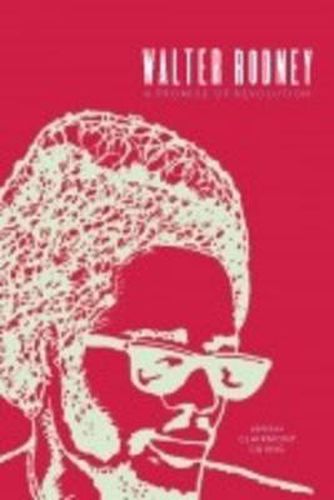Readings Newsletter
Become a Readings Member to make your shopping experience even easier.
Sign in or sign up for free!
You’re not far away from qualifying for FREE standard shipping within Australia
You’ve qualified for FREE standard shipping within Australia
The cart is loading…






The life of the great Guyanese scholar and revolutionary Walter Rodney burned with a rare intensity. The son of working class parents, Rodney showed great academic promise and was awarded scholarships to the University of the West Indies in Jamaica and the School of African and Oriental Studies in London. He received his PhD from the latter at the age of twenty-four, and his thesis was published as A History of the Upper Guinea Coast, now a classic of African history. His most famous work, How Europe Underdeveloped Africa, is a mainstay of radical literature and anticipated the influential world systems theory of Immanuel Wallerstein.
Not content merely to study the world, Rodney turned to revolutionary politics in Jamaica, Tanzania, and in Guyana. In his homeland, he helped form the Working People’s Alliance (WPA) and was a consistent voice for the oppressed and exploited. As Rodney became more popular, the threat of his revolutionary message stirred fears among the powerful in Guyana and throughout the Caribbean, and he was assassinated in 1980.
This book presents a moving and insightful portrait of Rodney through by the words of academics, writers, artists, and political activists who knew him intimately or felt his influence. These informal recollections and reflections demonstrate why Rodney is such a widely admired figure throughout the world, especially in poor countries and among oppressed peoples everywhere.
$9.00 standard shipping within Australia
FREE standard shipping within Australia for orders over $100.00
Express & International shipping calculated at checkout
The life of the great Guyanese scholar and revolutionary Walter Rodney burned with a rare intensity. The son of working class parents, Rodney showed great academic promise and was awarded scholarships to the University of the West Indies in Jamaica and the School of African and Oriental Studies in London. He received his PhD from the latter at the age of twenty-four, and his thesis was published as A History of the Upper Guinea Coast, now a classic of African history. His most famous work, How Europe Underdeveloped Africa, is a mainstay of radical literature and anticipated the influential world systems theory of Immanuel Wallerstein.
Not content merely to study the world, Rodney turned to revolutionary politics in Jamaica, Tanzania, and in Guyana. In his homeland, he helped form the Working People’s Alliance (WPA) and was a consistent voice for the oppressed and exploited. As Rodney became more popular, the threat of his revolutionary message stirred fears among the powerful in Guyana and throughout the Caribbean, and he was assassinated in 1980.
This book presents a moving and insightful portrait of Rodney through by the words of academics, writers, artists, and political activists who knew him intimately or felt his influence. These informal recollections and reflections demonstrate why Rodney is such a widely admired figure throughout the world, especially in poor countries and among oppressed peoples everywhere.